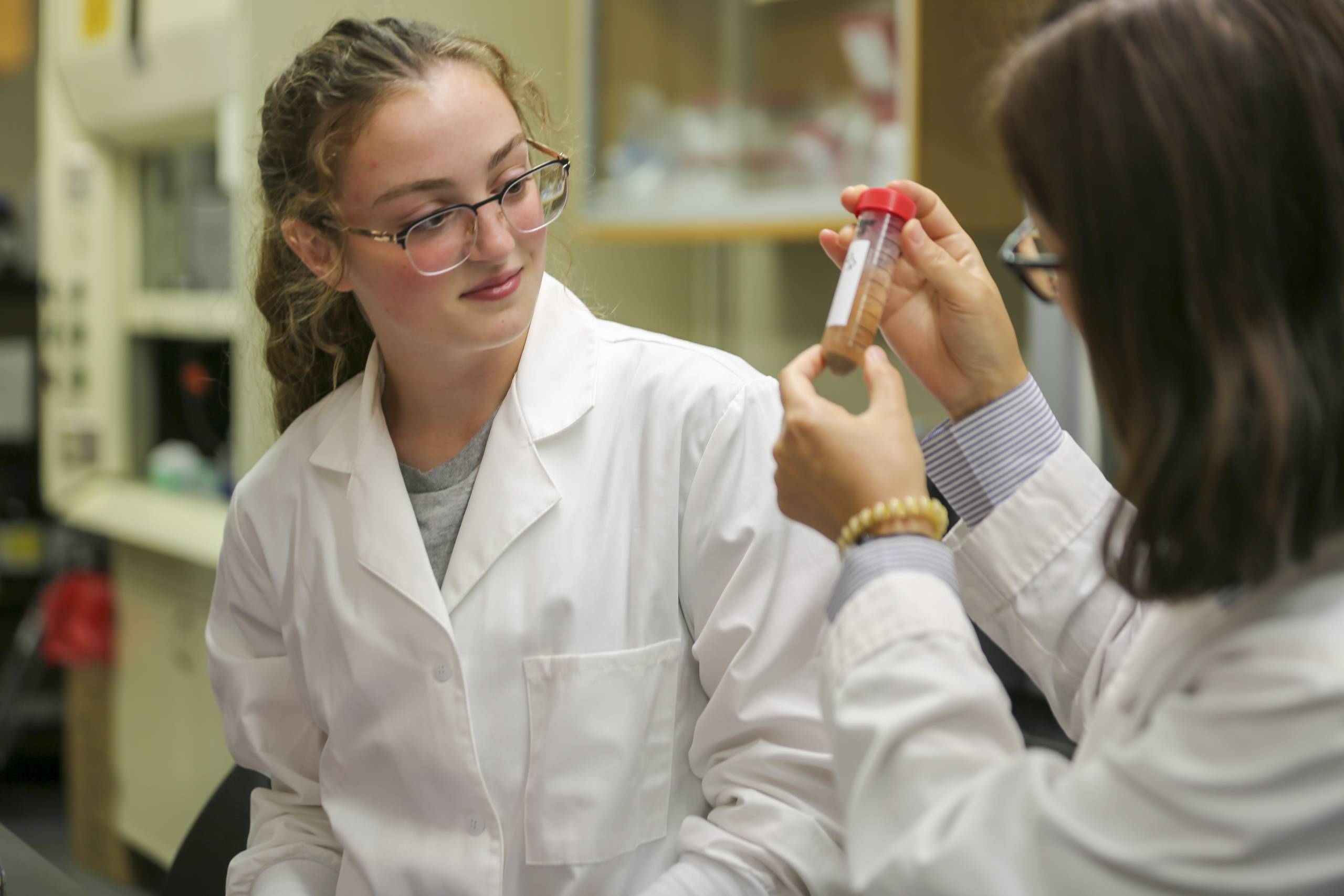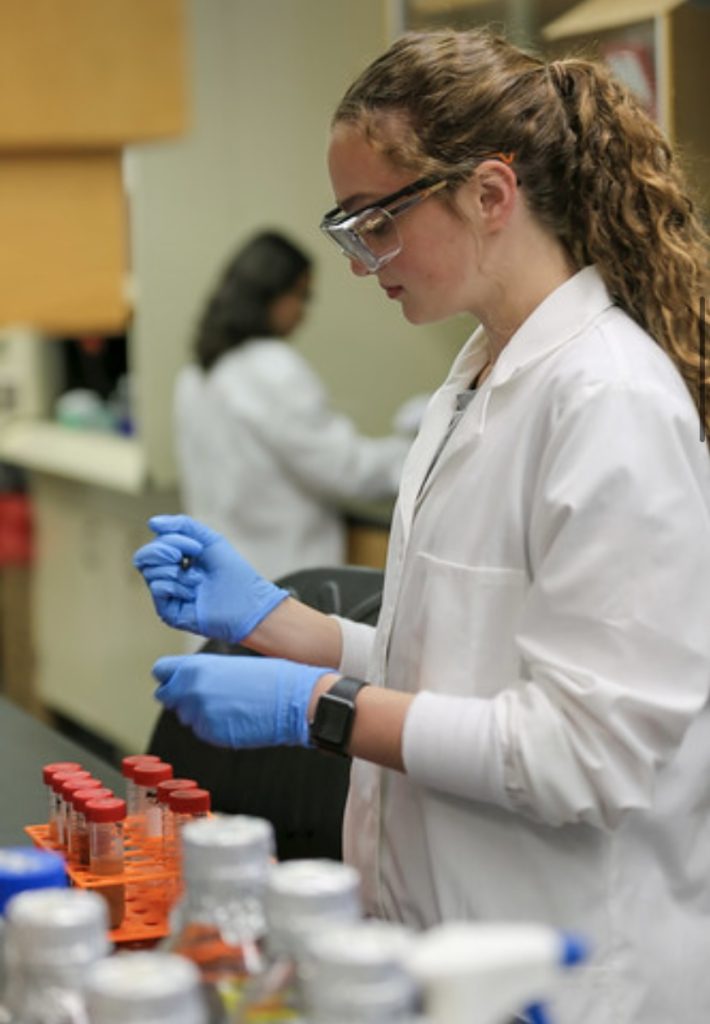
Demi White’s first plant sciences class at Mizzou transformed a budding scientist into a passionate researcher.
“I started here as a natural resources major and had participated in some fisheries research before, but when I took my first botany class I fell in love with plant sciences and decided I had to follow that,” said White.
Fast forward two years and White is now one of forty-three University of Missouri students to be awarded the MizzouForward Undergraduate Research Training Grants. These grants, funded as part of the MizzouForward investment, support student investigations in STEM and National Science Foundation-supported fields and enhance their graduate school applications. The one-year grants include up to $5,000 per year in salary support for the students.
The candidates were reviewed by 56 MU faculty, and the recipients are at least six months of undergraduate research experience in the same lab as their application research project, which must be related to science, technology, engineering and math or an NSF Graduate Research Fellowship Program field.
White has been working with Soyon Park, assistant professor in the Division of Plant Science and Technology, in Park’s lab since 2022. Park’s lab studies parasitic plants, specifically cuscuta campestris. White was inspired by her work in the lab and wanted to take a closer look at plant interactions with the parasitic plant if they were also affected by a beneficial fungi attached to their roots: arbuscular mycorrhizal fungi.

“What I was interested in was how the parasitic plant may interact with the host,” said White. “Usually, the parasitic plant will weaken the host and take out the nutrients and water from the host, but at the same time we have arbuscular mycorrhizal fungi in the roots, which are actually beneficial microbes. Those microbes actually help the plant obtain nutrients and water, particularly in times of stress. During biotic stress, it’s been proven that those microbes can actually improve tolerance to the stressors, so I wanted to see if the mycorrhizal fungi could help the host plants’ tolerance to the parasitism.”
As part of the research, White will also study potential RNA movement from the parasitic plant to the host plant, and differences in RNA expression from the host plant with or without parasites or mycorrhizal fungi.
White had brought her research idea to Park previously and they had run a few tests on the research ideas and decided to apply for the MizzouForward grant to use the funds to switch their research to a “model plant” — in this case, tomato plants.
“Demi is an outstanding student and I am so lucky to have her in my lab,” said Park. “She takes the lab and our research projects very seriously, even with all of her busy coursework going on, and even staying in town the last two summers to work in the lab. She had poster presentations numerous times in conferences and meetings. One of her papers, which she is the lead author of, is currently being prepared for submission to a peer-reviewed journal, so I was glad to be her mentor on this project.”
After securing Park as a mentor, White endeavored to design the entire research proposal by herself as part of the grant application.
“Proposal writing and experiment design is such a big deal if you want to go to graduate school and go into research, so getting that experience to really sit down, and think, and plan out an experiment, the logistics, what supplies you need, timeline, cost, protocol,” said White. “Not only that, but with an independent research project there are a lot of new things to learn, especially when you’re first starting out with research, and that’s a great learning experience regardless of how the experiment actually ends up. The problem solving prepares you for whatever you might want to do in the future.”
In graduate school, White hopes to study plant-microbe interactions, and is eager build her graduate school resume and research skills through this grant and hopes other students will do the same.
“Don’t be afraid to take on a scary or new opportunity or challenge, no matter how it may turn out,” said White. “The experience you can gain from working with a mentor, doing research under a mentor, and having those faculty connections, and trying something new is just invaluable. College is the best time to take some risks, learn new things, see what you like, see what you don’t like. So if you’re interested at all, don’t hesitate to reach out to a mentor and apply.”